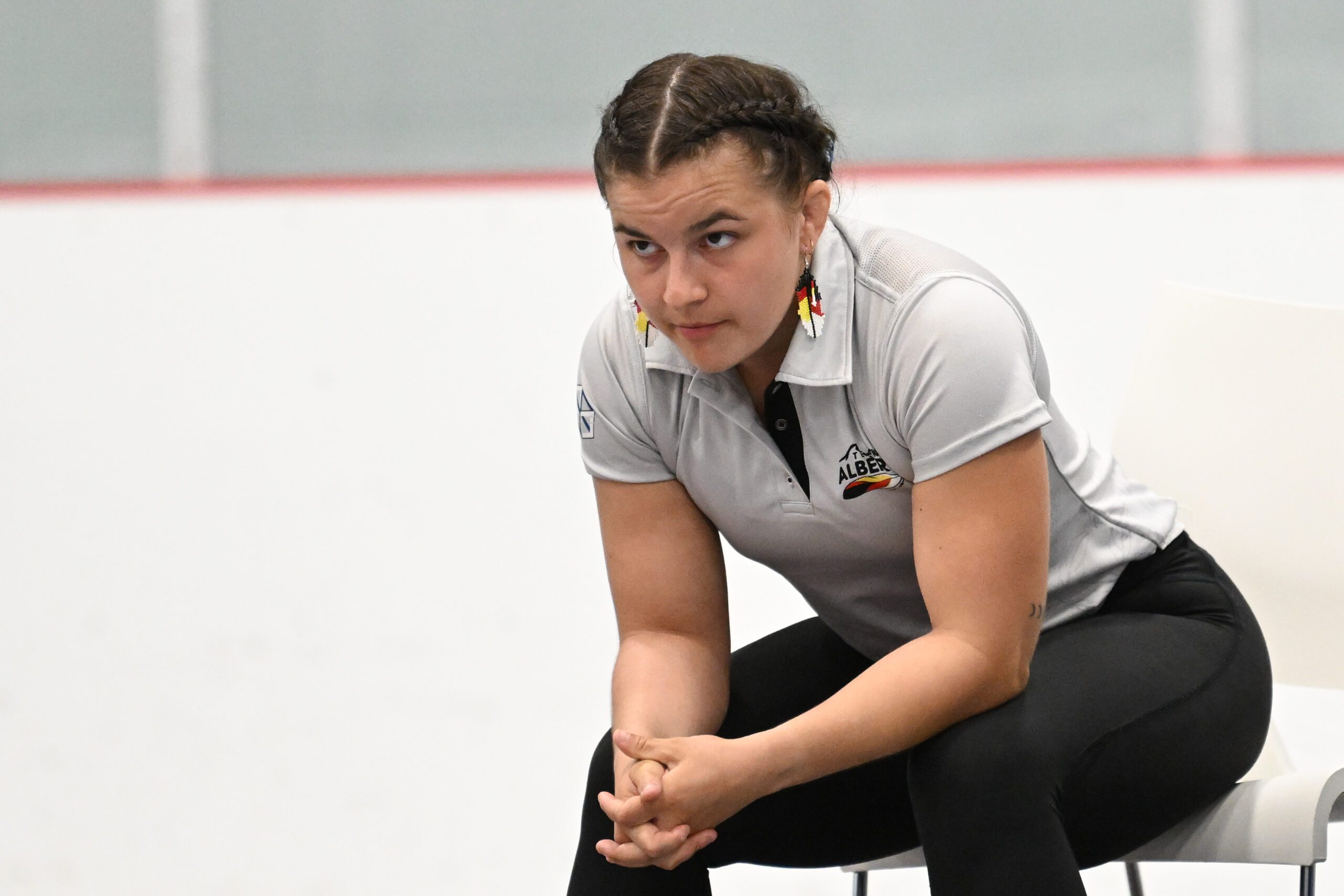
When Taylor McPherson first stepped onto a wrestling mat in Grade 7, she wasn’t dreaming of national titles, international tournaments, or coaching accolades. She was answering the call of her Grade 5 teacher, Mr. Watts, a man built like a wrestler, with WWE posters covering his classroom walls, who saw something in her.
“He looked at me and said, ‘Taylor, when you’re old enough, join the grade 7 wrestling team. I promise, you’ll love it. You’re built for it. You’re feisty,’” McPherson recalls with a grin. “From the second I stepped on the mat; you couldn’t pull me off.”
That spark of encouragement would ignite a lifelong passion.
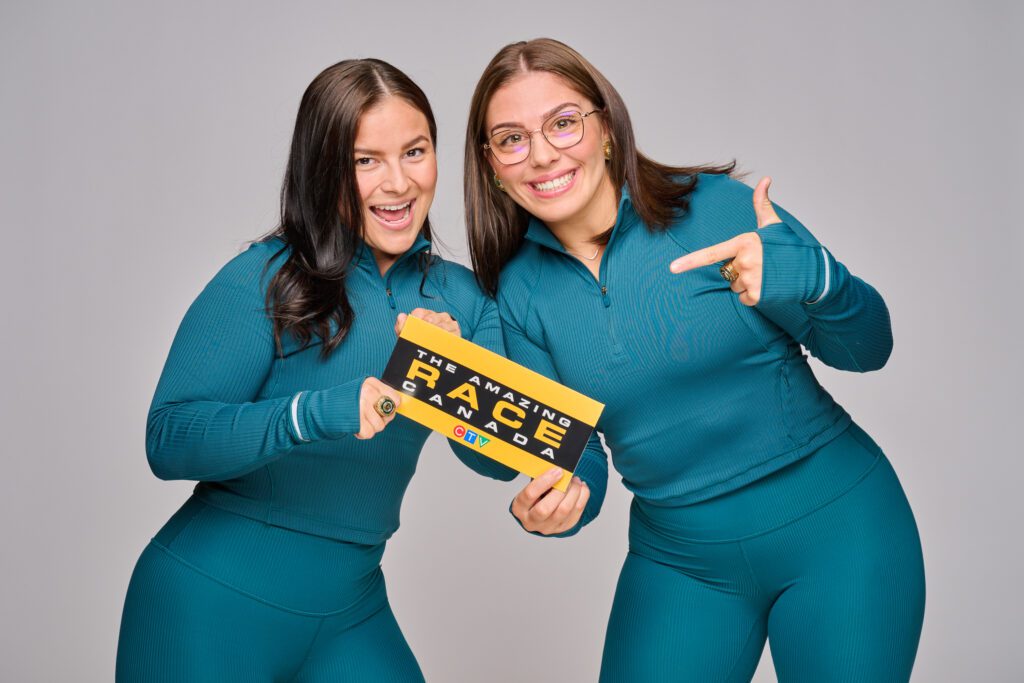
Today, McPherson is the head coach of Alberta’s female wrestling team for the 2025 Canada Summer Games, a fierce advocate for Indigenous inclusion in sport as part of the Indigenous Sport Council of Alberta, and a powerful example of what it means to lead with both grit and heart. While she’s also known as one half of the winning team on The Amazing Race Canada, it’s her work as a coach and mentor that defines what she’s wanting to build.
From wrestler to coach: A shift in purpose
McPherson’s competitive record is impressive: competing twice for Team Canada in the U23 World Wrestling Championships, multiple conference and national titles, and a varsity career at the University of Alberta under coach Owen Dawkins. But even as she accumulated accolades, something shifted.
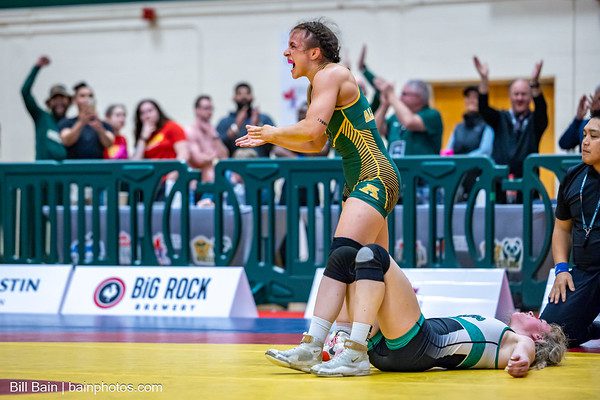
That turning point began when she was selected for the Aboriginal Apprentice Coach Program (AACP) at the 2022 Canada Games in Niagara. Still competing at the time, McPherson wanted to give back to the sport of wrestling and wasn’t sure of how to do it. Coaching offered a new path.
”Coach Dawkins told me about a coaching mentorship program through the Aboriginal Sport Circle,” she reflects. “That’s when I thought I could channel everything I loved about wrestling into something meaningful like coaching.”
The AACP is a national initiative that brings together the Aboriginal Sport Circle, coaching organizations across Canada, and the Canada Games Council to support the development of Indigenous coaches. Each province and territory send 2 apprentice coaches of First Nations, Métis, or Inuit ancestry to the Games, giving them hands-on experience and mentorship.
McPherson was 1 of the apprentice coaches from Alberta chosen for the program. And it was her experience as an assistant coach through the AACP at the 2022 Canada Games in Niagara that showed her new way forward.
Building a community of coaches and athletes
As McPherson transitioned from athlete to coach, her approach was shaped by a philosophy rooted in care, community, and cultural connection. She’s quick to name the mentors who supported her journey: Mr. Watts, club coach Cody Fairburn, who helped her stay in the sport through a rocky high school transition, and Coach Dawkins, who continues to guide her development.
“You can’t get through wrestling without a support system. You need someone in your corner,” she says. “Now I get to be that someone for these kids.”
But McPherson is also doing something she never saw growing up: being a visible Indigenous woman in a sport where few exist. “When I was younger, I didn’t see Indigenous women in wrestling. There weren’t many of us,” she says.
That absence fuels her. “Representation matters. If you’ve never seen someone like you at the top, it’s hard to believe you belong there. So, I try to make sure they see me, and I see them.”
Reconnecting with identity through sport
McPherson’s coaching journey is deeply tied to her own process of cultural reclamation. As a Mi’kmaw woman, her connection to her Indigenous identity didn’t come early.
“My mom wasn’t taught a lot. And therefore, I wasn’t taught a lot,” she explains. “And so, for me too, just understanding how I can intersect those 2 identities, bringing them together within sport has been a huge learning curve as well for myself.”
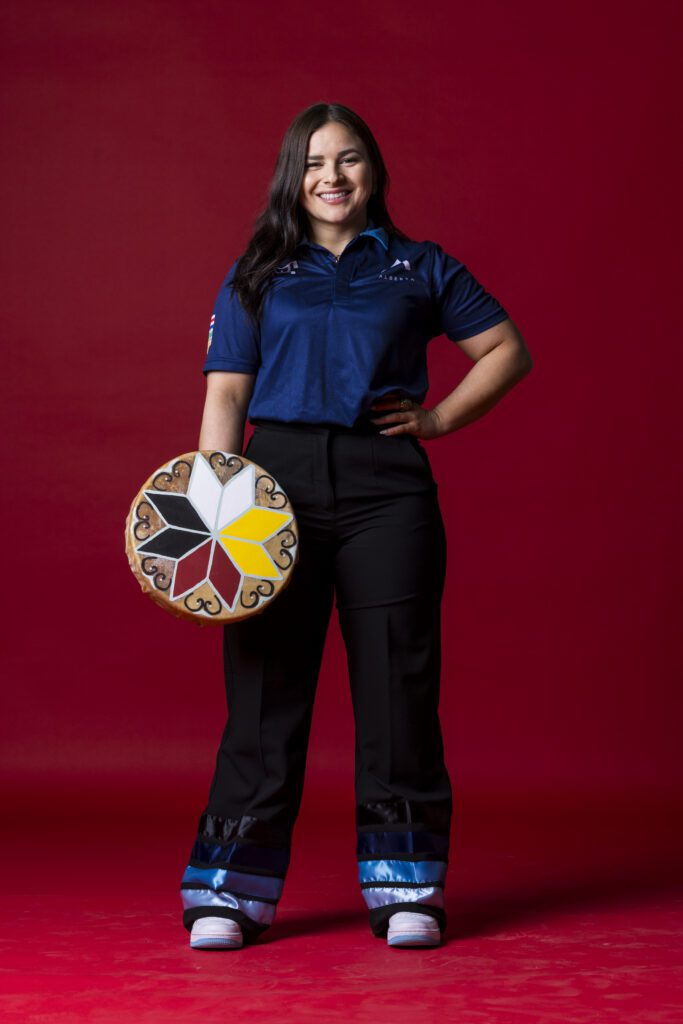
That began to change in high school, where an art teacher helped her explore her roots without judgment. It deepened at university, where she studied Indigenous history and began to understand the broader systemic forces shaping her family’s story.
“That’s when I really said to myself embrace your identity, you can be proud of who you are, and you can keep exploring. So since then, I have been in contact with my community.”
Today, she attends powwows, participates in ceremonies, and was gifted a Cree name.
“These are all the things I was missing for so long, and through sport it kind of came together and showed me… hey, you can be Indigenous, you can be in sport, you can include your identity in every aspect of sport if you wanted to, and it’s kind of cool to see.”
Coaching through a different lens
As the only Indigenous coach in the Edmonton Wrestling Club, McPherson is keenly aware of the gap and the opportunity. Wrestling doesn’t have a large Indigenous demographic, and the coaching pool is even smaller.
“The cost of certification is a huge barrier,” she says. “If I hadn’t been part of the Aboriginal Apprentice Coach Program, I would’ve had to pay thousands out of pocket. And we’re volunteer coaches. That’s not feasible for most people.”
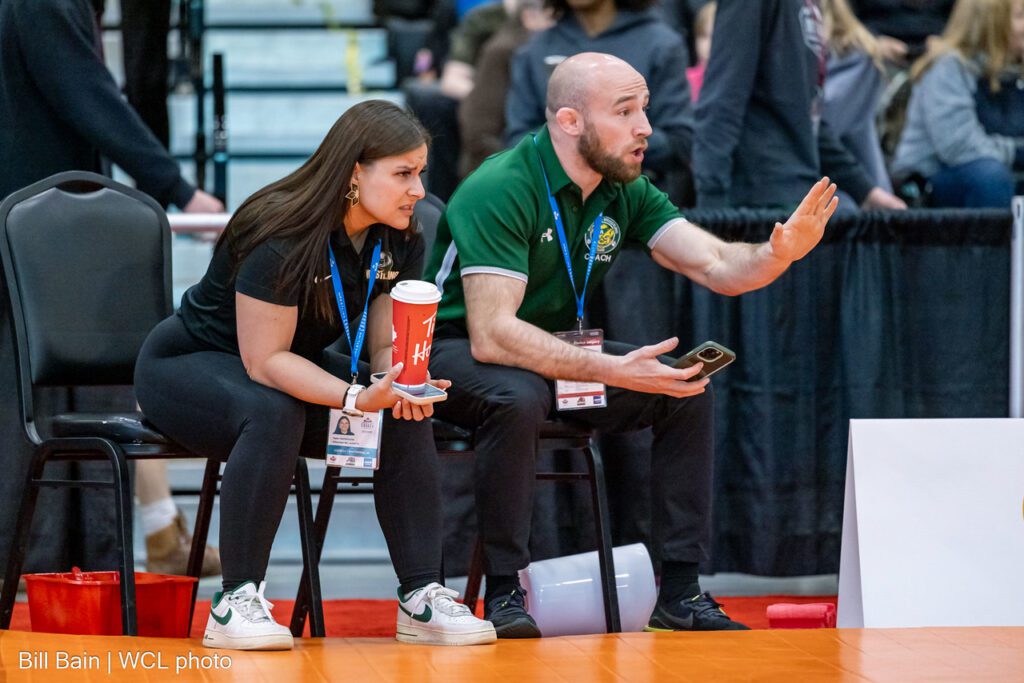
The program was her entry point to high-performance coaching and is, she believes, a vital part of building equity in sport. But it’s not enough on its own. While the AACP helps offset costs and offers valuable mentorship and conference opportunities, it only reaches a small number of coaches each year. To create broader impact, McPherson says, investment needs to start at the grassroots, especially in communities where coaches work directly with youth.
With the 2027 North American Indigenous Games approaching, there’s a window to build capacity. She envisions clinics, traveling camps, and training programs that grow wrestling and empower more community members to step into coaching roles.
Empowerment over domination
When it comes to getting youth engaged and keeping them in the sport, McPherson’s coaching is deeply relational. She builds trust before she builds tactics. It’s hands-on and rooted in empowerment rather than control. This approach is echoed by Gurgis et al. (2022) who explored the coaching approaches of Mi’kmaw First Nation coaches and highlighted that building trust, recognizing the wholeness of athletes, and going beyond the technical and tactical aspects of coaching are integral.
“I want to be an approachable role model, on the mat, joking around, getting to know the kids,” she explains. “It’s not about being above them, but beside them. When they see themselves in me, they start to believe, ‘Maybe I can do this too’.”
She knows athletes want to win but for her, coaching is about shaping the experience.
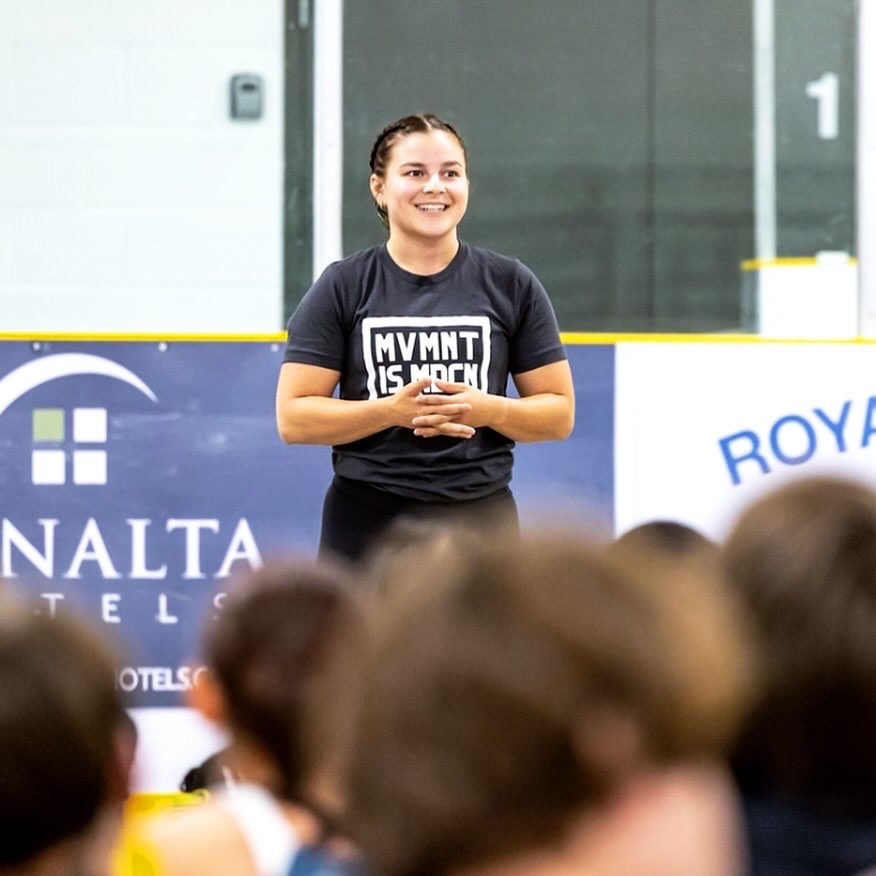
“I want these youth to walk away saying, ‘Wow, remember when we went to the Canada Games?’ and be talking about that 30 years later.”
With leading Alberta’s female wrestling team toward the 2025 Canada Summer Games in St. John’s, Newfoundland and Labrador, McPherson is integrating everything she’s learned. But she sees the Games as a major opportunity, not just for athletic achievement but for community-building and identity development.
“I want to build team spirit, uplift young women in the sport, and create lasting connections,” she says. “Too often, athletes peak young, at nationals or the Canada Games, and then drop out. My focus isn’t on winning at all costs; it’s about embracing the experience. You never know when your last match will be, so make every moment count. For me, it’s about building pride in our province and turning a group of athletes into a team.”
She invests in team building exercises, creates space for athletes to share stories, and emphasizes growth over gold medals. “I tell them, your goal is to leave this process as a better person. If these athletes come out of this as better humans, they’ve already won.”
Redefining success and legacy
In a sports world often obsessed with rankings and results, McPherson is redefining success. She believes that sport can be a powerful vehicle for reconciliation, healing, and belonging, especially when led by people who understand the nuanced realities of Indigenous life. There are financial barriers, cultural barriers, and just not seeing yourself represented, she explains, but “when we show up and stay visible, we shift what’s possible.”
And that’s exactly what McPherson is doing: building pathways where none existed, shaping athletes who are not only stronger on the mat but more grounded in who they are.
“I hold the role of a coach or a role model to a high standard,” she says. “Especially for young girls, and in particular, Indigenous girls.
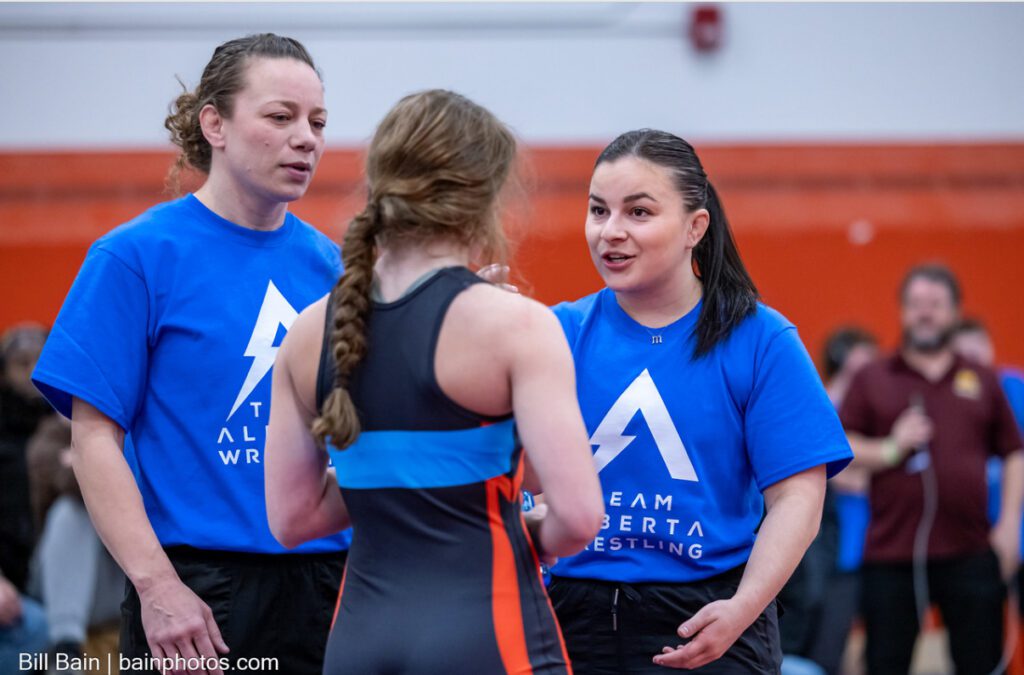
As McPherson continues to mentor and lead, her focus remains clear: make space, build capacity, and keep the door open for others. Coaching, for her, isn’t about legacy or recognition, it’s about doing the work, staying connected to community, and helping the next generation see what’s possible in sport and beyond.